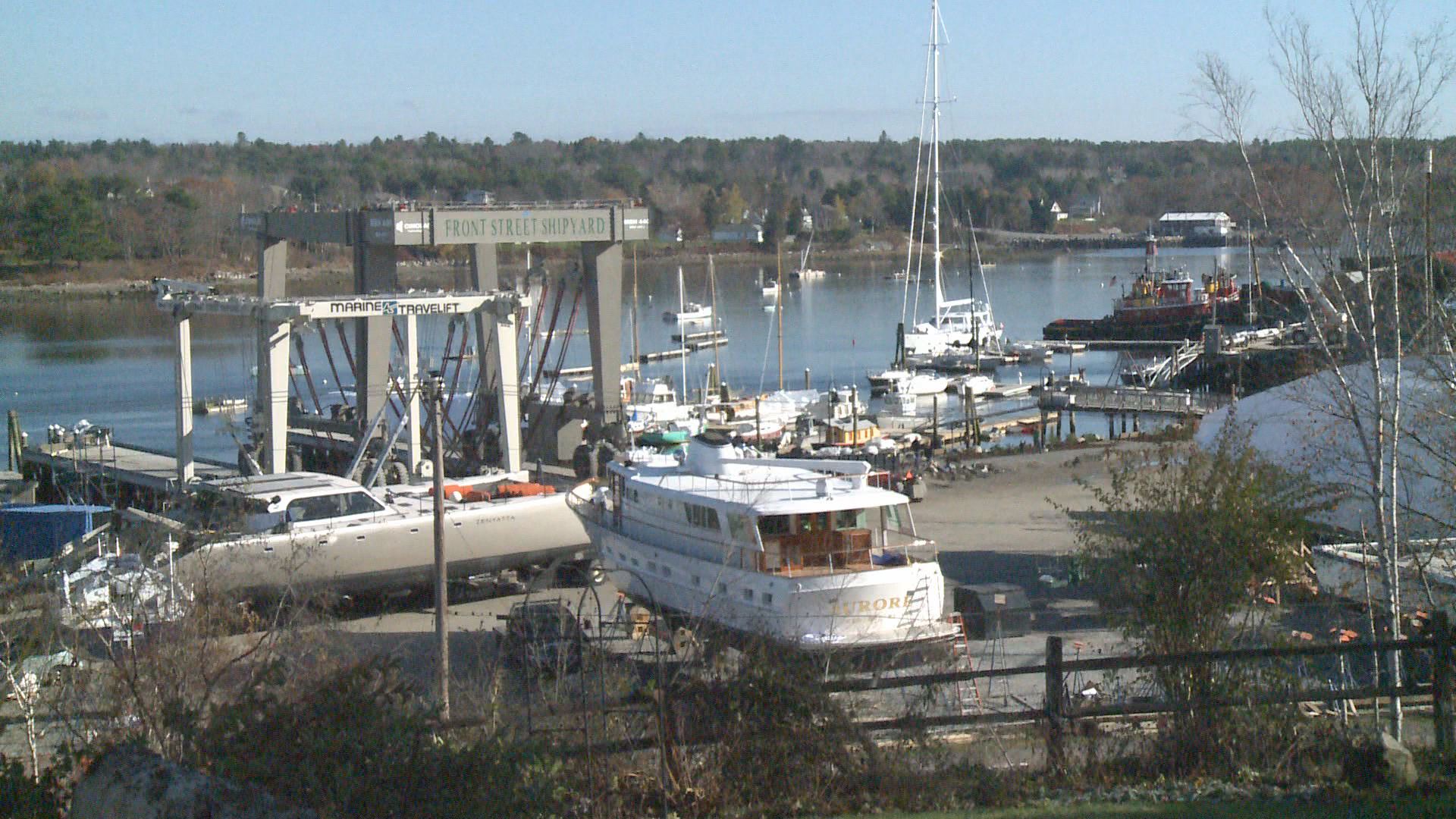![635532317485440263-belfast [ID=19863895]](http://www.gannett-cdn.com/-mm-/33d97f8a03d5ea06baca0f7a30eca34c8bd87643/r=500x281/local/-/media/MEGroup/WCSH/2014/12/03/635532317485440263-belfast.jpg)
BELFAST, Maine (NEWS CENTER) -- For generations, people have been trying to make Maine's economy boom, hoping to find ways for the whole state to finally prosper. While greater Portland and a few other parts of the state appear to be doing fairly well, at least by Maine standards, most of the rural areas still struggle. The mill towns of Millinocket, East Millinocket, Old Town and Bucksport are struggling more than most right now, as paper and pulp mills close or go bankrupt.
Forty years ago, pulp and paper was king of the Maine economy. Millinocket and East Millinocket were the biggest of all, with the two mills employing about 4,000 people and paying some of the best wages in the state.
"People had jobs, people weren't thinking about cutting back, they were thinking about what new opportunities you could bring in," said Millinocket Town Manager Peggy Daigle.
At the same time, 100 miles away, Belfast was heading downhill. Belfast today is a prospering, attractive small city, but it used to be a dirty industrial community, with poultry plants, show factories and other industries right on the polluted harbor.
"I remember trucks going up Main Street, pouring chicken goo out of the back of the truck as they'd be taking it off to a hog farm somewhere," said former Mayor Mike Hurley.
When the shoe and poultry businesses went away in the 1980's, Belfast crashed. In its own way, the city hit hard times similar to what Millinocket faces now.
However, Belfast made a remarkable recovery. Former city leaders said it took "a lot of fights" and a lot of time, but the decisions made eventually paid off. Officials focused first on fixing and upgrading infrastructure, improving the harbor and other policies to make the city more attractive. As the city improved, new people and businesses came to the city, finally landing credit card giant MBNA. Together, with long-time window manufacturer Mathews brothers, MBNA led to a busy job market with Bank of America, Atherna Health and, most recently, a new business called Front Street Shipyard.
![635532317484840263-eastmill2[ID=19863865] ID=19863865](http://www.gannett-cdn.com/-mm-/aac22ce6426cd2f155fd51c5dacad34de3dcb375/c=242-0-1678-1080&r=115x86/local/-/media/MEGroup/WCSH/2014/12/03/635532317484840263-eastmill2.jpg)
"If you ride through Millinocket and go into other areas of the town, there are some beautiful homes. But right next to it is a home that's vacant and over time will get dilapidated and bring down the value of the homes around it," said Daigle.
Now that Millinocket and other mill towns are in crisis, does Belfast have any lessons to teach? Hurley said he has been asked that same question by people from Bucksport and Millinocket. He said it takes patience, a plan and willingness to invest in the community. Former councilor Mike Towey said it forces communities to be "brutally honest" with themselves about problems and opportunities as they create a plan to move forward.
"The resistance to change was enormous, people felt threatened. It was almost like the city was trying to govern itself by looking in the rear view mirror, and really not seeing that we had to take control of our own destiny and start doing different things," said Towey.
In Millinocket, Daigle said they're trying to start that planning now. She said it starts with the realization that the paper mill isn't coming back, and that the town will need to look for other kinds of businesses to grow and provide the jobs to rebuild.


